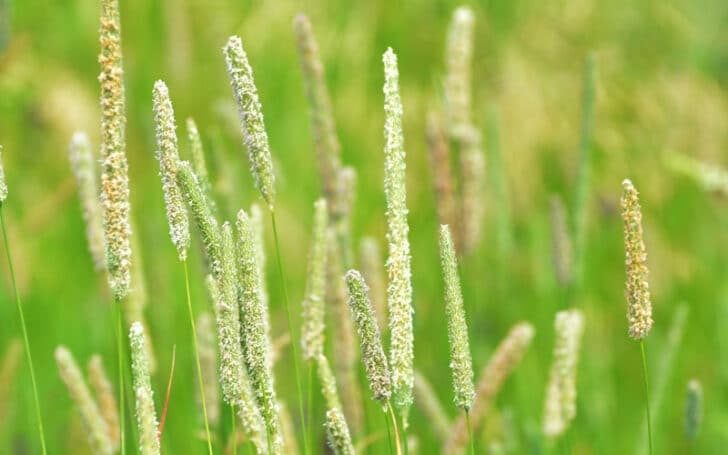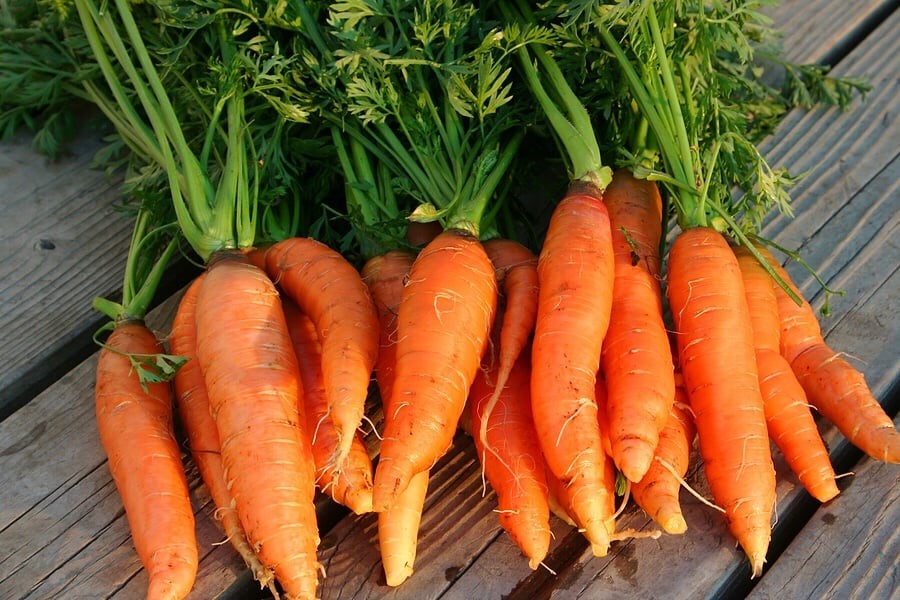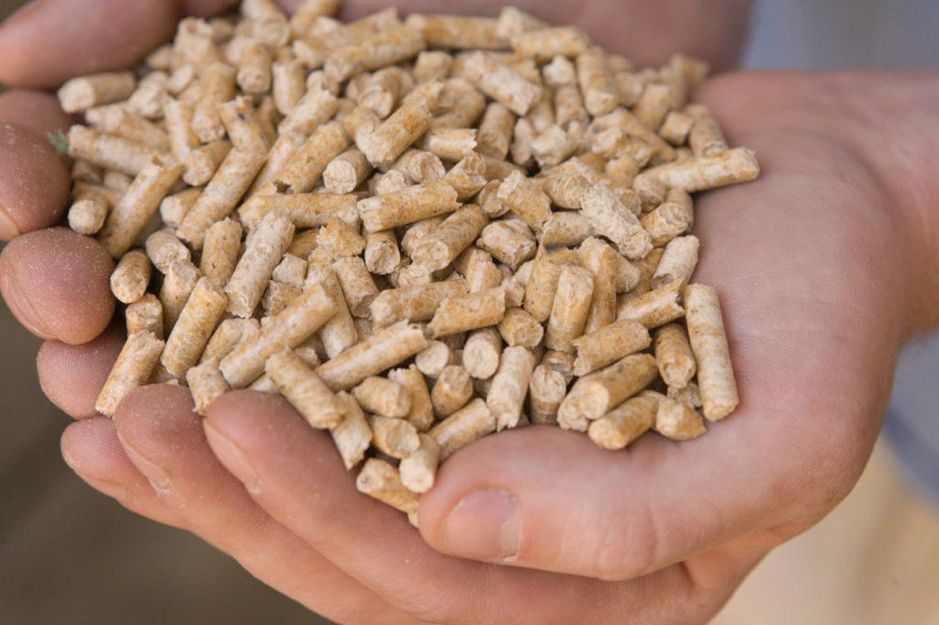Raising rabbits is no longer strange to pet lovers. Which foods good for rabbits are also things to consider in addition to mastering techniques, and how to care for them effectively?
If you are raising rabbits or planning to take care of a lovely rabbit, you will definitely want to know the Top 5 best foods to help your rabbit grow healthy.
1. TIMOTHY GRASS
Grass is a type of hay with high nutritional value, very popular in the diet of rabbits, especially pet rabbits. This type of grass is popular because of the special benefits it brings:
 Image of Timothy grass
Image of Timothy grass
Benefits of timothy grass for rabbits
– The fiber in Timothy grass helps improve the digestive system, preventing constipation and digestive problems common in rabbits.
– Low protein and calcium content reduces the risk of obesity, kidney stones or urinary system related diseases in rabbits.
– The crunchiness of grass helps rabbits grind their teeth effectively, reducing the risk of abnormally long teeth.
– Aids digestion, helps remove ingested hair, especially important when rabbits lick their fur
– Suitable for rabbits 6 months and older.
Timothy grass is often imported from countries such as the US or Thailand. When buying, you should choose products from reputable brands to ensure quality, and store the grass in a dry place to avoid mold
2. GREEN VEGETABLES
Green vegetables are an important part of a rabbit’s diet, providing essential vitamins and minerals.
Vegetables to feed rabbits
– Celery: Very good for rabbits, contains vitamin B, potassium and folic acid. You can use both stems and leaves, but need to be washed before feeding.
– Green leafy lettuce: Like romaine, is nutritious and safe for rabbits.
– Carrot tops and parsley: Provide many vitamins but should be limited due to high oxalic acid content
– Bok choy, kale, basil, mint: These are safe and nutritious green vegetables that should be included in your diet.
Vegetables should not feed rabbits
– Limit vegetables high in oxalic acid: Such as spinach, turnip tops, and mustard greens, which should only be fed in small amounts a few times a week to avoid urinary problems.
– Avoid unsuitable vegetables: Rabbits should not be fed cabbage, onions, garlic, or starchy vegetables such as potatoes as they can cause bloating and poor digestion.
3. CARROT AND TUBERS
Carrots and other tubers such as beets or turnips are chosen as rabbit food because they provide many essential nutrients. However, they need to be used properly and in reasonable amounts to ensure the health of rabbits.

– Carrots: Carrots provide a lot of vitamin A, but are high in sugar, so should be fed sparingly and not too often. Carrot tops are also a better food source because they are low in sugar and high in fiber.
– Tubers such as beets, turnips, or turnips can be added to the diet in small amounts. These foods provide vitamins, minerals, and some energy, but should not be the main ingredient as rabbits need a high-fiber diet from hay and leafy greens to maintain a healthy digestive system.
– Considerations and Limitations: Feeding your rabbit tubers or carrot should be limited to avoid the risk of weight gain or digestive upset. These foods should be supplemented as a small part of the main diet, along with grasses such as Timothy grass, and green vegetables such as lettuce, watercress, or turnip tops.
4. SEED
Seeds are chosen as rabbit food because they provide several nutritional benefits to rabbits.
Benefits of seed
– Certain seeds, such as pumpkin seeds and sunflower seeds, are high in protein, healthy fats, vitamins, and minerals. They can help improve your rabbit’s coat, making it smoother and shinier.
– Pumpkin seeds also help strengthen the immune system and aid digestion, especially having the ability to help eliminate worms from the body.
– Seed products, such as sunflower seed cake or meal, are rich in fiber and protein, which help promote young rabbit growth and improve digestive health.
Notes when using seeds as food
– Limited Portion: Seeds are high in calories and are not suitable for obese or elderly rabbits. They should only be given in small amounts to avoid the risk of excessive fat accumulation.
– Don’t overfeed: Rabbits have sensitive stomachs, and overconsumption of nuts can cause digestive upset. They should only be used as a supplement, not as a main food
How to use effectively
Seeds should be cleaned, allowed to air dry, and introduced slowly into the rabbit’s diet to get them used to it. This is especially important with young rabbits.
Seeds can be part of a varied and balanced rabbit diet when used properly, however, you should consult a veterinary professional before making any changes to your pet’s diet.
5. MIXED FEED
An industrial product specially manufactured to provide complete nutrition for rabbits, helping them grow healthily and maintain a good digestive system. This is a convenient, clean and time-saving choice for breeders.

Benefits of mixed feed
– Mixed feed often contains important ingredients such as protein, fiber, calcium, phosphorus, along with vitamins (such as A, D, E, B12). The nutritional ratio is optimized according to the needs of rabbits at each stage of development.
– High fiber content helps rabbits grind their teeth naturally and prevents digestive problems.
– Pellet form reduces feed waste and keeps the farming environment cleaner.
– The composition of pelleted feed can be adjusted to suit the breeding purpose of rabbits (meat, fur, or ornamental).
How to use:
– Food ration: Depending on age and breeding goals, the amount of pellets will range from 20-60g/day/adult rabbit.
– Combination: Although pellets are nutritious enough, you should still combine them with hay (like Timothy), vegetables, and clean water to balance the diet.
Mixed feed is the optimal choice when combined with a diverse and reasonable diet, bringing high efficiency in raising rabbits.
The information about the 5 best foods for rabbits can help you apply all in practice and have more experience in taking good care of your rabbits.
